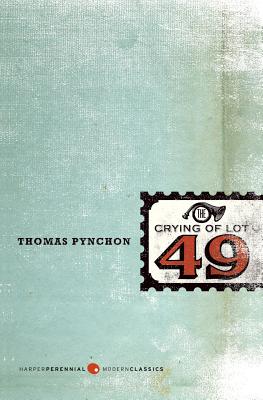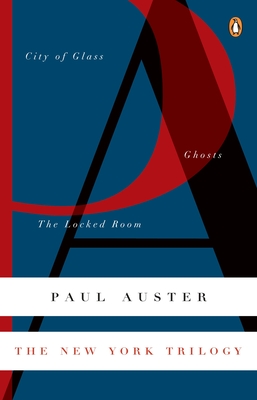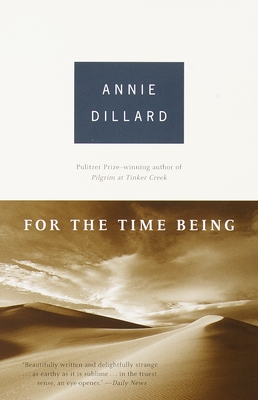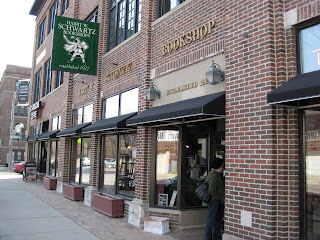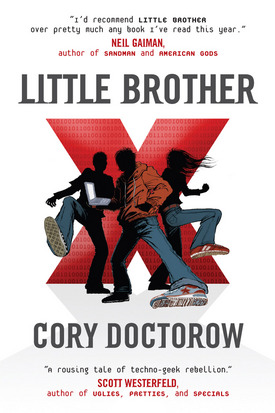or, Two More Meaty Ways in Which the Platform Changes, but the Song Remains the Same.
by digi-jay < partially x-posted from impoverished artifices >
-----------------------------------------------
Discussed:
 BBC's Digital Planet discusses a South African mobile web app story serialization project.
BBC's Digital Planet discusses a South African mobile web app story serialization project.
NPR's All Things Considered compiled a story about the "wovel", which is, in essence, a roughly interactive serialization of a novel on a blog or on the web (web + novel = wovel).
Questions:
How interactive does interactivity have to be?
Are physical spaces that sell books doomed?
-----------------------------------------------
Listening to the very good Digital Planet podcast from the BBC World Service on the iPhone at the grocery store, I heard about a South African story project, Novel Idea. It's sent to subscribers over mobile texts, but it is not like the Japanese mobile text novels that the NYT had a feature on in January 2008. Rather than being a story in a text message, the text delivers a link to a WAP site that hosts the stories. There are several authors working on the project, with a variety of types of work (I *so* resist the word "genre" here...).
The form mimics serialization, as it condenses the space of composition into a word limit. The WAP rather than SMS, though, increases the amount of text that can be published per installment. "Punchy" was one term used to describe the mode of creative composition, as the author needs to hook the reader in a small space.
The manager of the project, Emma Kaye, mentioned that mobile technology in South Africa is more prolific than internet access. According to Kaye, mobile phones have a penetration rate of 90% in South Africa. One reason for this could be that, again according to Kaye, SMS is cheaper than voice rates. Thus, this form of literature can have a greater reach than the form that I'll discuss next.
The form, while not interactive, is certainly portable and a result of adaptation to new technologies. It can also be shared with friends, by forwarding the text link - though a believe the R$1.50 charge for establishing a subscription. It's also a competition: readers vote on the best story, until only one author remains. So, I suppose, in a way it is interactive--readers can end stories.
The "wovel" First World, as featured on NPR's All Things Considered is a similar development of writing meeting new modes of reading. Published in blog format--though, really, one could say published on the web, with abilities for comments; blog is just a catch word--this serialization offers readers a collective interactivity. They are allowed to vote for a binary option of how the story unfolds in the next installment. Through comments, they are given the opportunity for a digital rhetorical discourse on how the story should unfold.
The most interesting aspect of Novel Idea and the wovel to me, as an author, is how the act of writing is being adapted to fit new methods of reading and publishing media. Neither of these styles of publishing are necessarily new, as the serialization of fiction has a very long history and has been far more interesting. For instance, sensation fiction publications in Victorian England purposely blended fiction and nonfiction to break down lines of categorization. These tehno-forms are just plain storytelling--on a new platform that may require some new limitations on length, predominantly.
I'm interested in the interactivity offered by the wovel, in that it is collective rather than individual. I would tend to prefer the individual choose your own adventure style of reading, rather than being offered a binary decision in which I only have a small say. Reading has traditionally (to me and in "Western" culture, I'd venture) been an individual act. Thus, this collective is both interesting and limiting. The limiting almost makes it identical to authorial decision-making, though that power is spread out. Again, I'd be interested in seeing that power dissolve, by offering infinite outcomes.
Why not paper? If we're talking about brevity, there are plenty of excellent flash fiction collections out there, such as Flash Fiction Forward (< /bayard_plug >). With paper, you do lose the technological convergence of the hand-held: voice, data, network -- and everything that accompanies these. Paper does have the advantage of the brain's mode of memory, however, in that the rigid layer of paper offers a static spatial sequence that can be internalized -- the paragraph at the top, the sentence on the left-hand page.
As bookseller, electronic distribution of texts is usually a generally threatening proposition. What happens when War & Peace is available for download on my iPhone or your Curve? OMG, we're all going to disappear!!1!
And, while this *is* slowly happening -- indies closing, chains starting down that road, Project Gutenberg delivers War & Peace to my phone for free, what I'm sure is a majority of reading now being done online (Lessig says so...) -- I don't think it's because I've actually read or would prefer to read The Society of the Spectacle or even Free Culture on my mobile, rather than in bound paper form. (For starters, I can't highlight my touch screen and write marginalia.) Rather, one giant reason is that readers are individually living online and letting the evil A and their superior algorithm tell readers what they might like. It isn't e-texts that are being distributed to problematize paper and bricks-and-mortar, it's paper being distributed from an electronic source that endangers your neighborhood bookshop.
Does that mean that the "real" is doomed to succumb to the "virtual"? I don't think so, and not just because I think that binary isn't accurate ("real" and "virtual" overlap and bleed and are much more porous than a binary realtionship allows -- see this blog and the bookshop we all happen to work at where we talk about this blog).
My hope lies in the fact that the evil A doesn't really offer a place for readers to organize or form commnunity. They are very much about commerce and have not been able to hide or complement that with a social aspect. In fact, there isn't a predominant or set of predominant social networks for readers -- at least that I've found. They all seem partial or don't offer the community we come to expect from more popular social networking experiences, like Facebook.
One speculation for this might sound something like the long tail of media consumption. TV and film have limited programming options to offer, due to methods of distribution (networks, basic cable, expanded cable, web-only, in a descending manner for TV). While this has grown with Web 2.0/RW/remix culture, the number of offerings for TV and film must be dwarved by the number of books published yearly by major houses. Add in small presses and academic publishers and that number probably doubles. (And that's not including self-publication outfits, as the RW culture has not crossed into the book world. "Self-published" and "vanity press" are very dirty words.)
 So what, dude? you're asking. My point here is that it's easier to form community around a show like Lost, as so many more people view it, as their viewing options are intrinsicly less on TV than they are in a bookshop. Where's that message board for Gone Away World, Jordan? It's harder to find people who want to talk about the same books that you've read, as, not only is reading ficiton less common than watching TV, the number of ficticious books you can choose to read is far greater than the number of TV series you can choose to watch.
So what, dude? you're asking. My point here is that it's easier to form community around a show like Lost, as so many more people view it, as their viewing options are intrinsicly less on TV than they are in a bookshop. Where's that message board for Gone Away World, Jordan? It's harder to find people who want to talk about the same books that you've read, as, not only is reading ficiton less common than watching TV, the number of ficticious books you can choose to read is far greater than the number of TV series you can choose to watch.
What's this have to do with bookshops with front doors, that pay local taxes to support schools and infrastructure and employ members of your community? In theory, it should hurt them, as ecnomies of scale and the long tail should make it easier and cheaper for small groups to connect online. (I'm sure there is a group of three people talking about Gone Away World somewhere in some corner of the internetz -- and I'd like you to give me the names of the other two folks, Jordan, so I can properly cite them.) But -- and here's the turn -- there's a difference between talking about and selling things, no matter how closely they're related. And, personally, this is where I see the advantage of the community bookseller over the evil A or equivalent.
The bookseller(s) is better than the algorithm.
The good bookseller can tell you what people enjoy, what's new to the shelf, what people who read are enjoying -- and why.
The algorithm can tell you what other people bought.
Pick up your mobile and find out where your nearest (indie) bookseller is and start a conversation with anyone: a bookseller, that girl in the "science fiction" section or that weird guy over in the corner by magazines.
 This is short (a few more than 100 pages) and will be read very quickly. It's a genre-bender that mostly lives in a fantastical dream world of an un/inhabited island. The main character, fleeing some law ins some country (murder!?!) takes refuge on the island, discovers a mysterious and luxurious hotel with enigmatic contraptions (kind of like a bizarre mechanical heart for the building/island) and is then joined by visitors, led by the bizarre Dr. Morel, that may or may not see him, that may or may not be real, or that may or may not be existing at the same time that the main character is existing.
This is short (a few more than 100 pages) and will be read very quickly. It's a genre-bender that mostly lives in a fantastical dream world of an un/inhabited island. The main character, fleeing some law ins some country (murder!?!) takes refuge on the island, discovers a mysterious and luxurious hotel with enigmatic contraptions (kind of like a bizarre mechanical heart for the building/island) and is then joined by visitors, led by the bizarre Dr. Morel, that may or may not see him, that may or may not be real, or that may or may not be existing at the same time that the main character is existing. mend it as summer reading. Plus, Bayard loves this book, too, as do many other former Schwartzies. This is David Mitchell's follow-up to the (as-yet-unread-but-I-hear-it's-[and-is-on-my-short-list-of-long-books-]) fabulous Cloud Atlas, a coming-of-age story of a boy in England, discovering all is not what it seems, making unlikely friendships and navigating the trials of family life and strife. This is one of those books you really, truly won't want to put down and might not. It's well-paced and populated with, what seems while reading, all the "right" people, places and problems.
mend it as summer reading. Plus, Bayard loves this book, too, as do many other former Schwartzies. This is David Mitchell's follow-up to the (as-yet-unread-but-I-hear-it's-[and-is-on-my-short-list-of-long-books-]) fabulous Cloud Atlas, a coming-of-age story of a boy in England, discovering all is not what it seems, making unlikely friendships and navigating the trials of family life and strife. This is one of those books you really, truly won't want to put down and might not. It's well-paced and populated with, what seems while reading, all the "right" people, places and problems.
